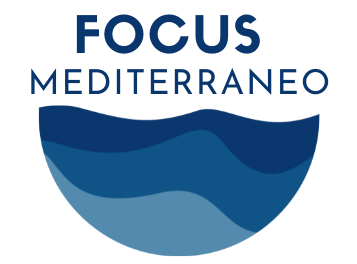In one of his most powerful and moving speeches, Pope Francis exposed a painful truth that too many in the Western world continue to ignore. Speaking about the Democratic Republic of the Congo and the African continent as a whole, he denounced a new form of colonization that is no less destructive than the political imperialism of the past. “After political colonialism,” he said, “an equally enslaving economic colonialism was unleashed.” His words struck at the heart of a global injustice: that Africa, a continent so rich in natural resources, remains shackled by poverty, exploitation, and foreign control.
Today, the face of colonialism has changed. It no longer wears military uniforms or flies imperial flags. Instead, it arrives in tailored suits, with corporate logos, backed by legal contracts and trade agreements. Multinational corporations have become the new colonizers. These powerful entities, often headquartered in the Global North, exert enormous influence over African economies, extract natural resources, and repatriate profits—leaving behind ecological devastation, social dislocation, and economic dependency.
The Pope’s words capture a cruel irony: “The fruits of this land render it a ‘foreigner’ to its inhabitants.” The soil of Africa is among the richest on Earth. It holds over 30% of the world’s mineral reserves, vast oil fields, endless agricultural potential, and rare earth elements essential to the digital age. And yet, the people who live on this land often have no control over its wealth. Their countries are locked into cycles of dependency, governed by external debt, and manipulated by foreign investment policies that benefit others far more than they benefit local populations.
In the Democratic Republic of the Congo, for example, the story of coltan, cobalt, and diamonds is well known. These are materials that fuel our smartphones, laptops, and electric cars—symbols of modernity for the Global North. But behind the convenience of technology lies a reality of child labor, armed conflict, and environmental ruin. Foreign corporations, in complicity with corrupt local elites, exploit the Congo’s resources without investing meaningfully in infrastructure, education, or healthcare. As Pope Francis said, “the poison of greed has turned its diamonds into blood.”
This is not simply an economic issue; it is a moral and human tragedy. It raises urgent questions about justice, accountability, and the values that govern global trade. The colonial logic of resource extraction, which treats the land and its people as commodities, persists in modern business practices. Many multinational corporations maintain profit-driven operations with little regard for human rights or ecological sustainability. They often negotiate deals in secret, use legal loopholes to avoid taxation, and hire private security forces to suppress local resistance. These tactics echo the old colonial doctrines of domination and control—only today they are backed by market logic rather than imperial ideology.
Meanwhile, the Western world often turns a blind eye. Governments, investors, and consumers alike benefit from the cheap resources and products that this system provides. There is little mainstream media coverage, little public outcry, and even less accountability. As Pope Francis observed, the economically powerful often “close their eyes, their ears, and their mouths” to the suffering of Africa. This silence is not neutral—it is complicit.
But Africa is not a passive victim. Across the continent, activists, scholars, youth leaders, and grassroots organizations are demanding change. They are calling for resource sovereignty, fair trade, and a new economic order that empowers African nations to control and benefit from their own wealth. They reject the narrative of poverty and dependency and instead assert a vision of African agency, dignity, and leadership. As the Pope proclaimed, “Africa must be the protagonist of its own destiny.”
To achieve this, the world must recognize Africa not as a mine to be exploited or a market to be manipulated, but as an equal partner in shaping the future. It must give African voices a platform in international decision-making, provide debt relief, enforce regulations on multinational operations, and support efforts to build resilient and inclusive economies. African countries need infrastructure, not interference; collaboration, not coercion; solidarity, not subjugation.
One crucial step is for consumers and citizens in the Global North to become aware of the supply chains that connect their daily lives to African resources. Ethical consumption, pressure on corporations, and support for fair trade initiatives can make a difference. At the same time, Western governments must be held accountable for the international policies that enable corporate exploitation—such as unfair trade agreements, investor-state dispute settlements, and tax haven protections.
The legacy of colonialism is long and brutal. It has inflicted deep wounds on the African continent—wounds that have not yet healed. But as Pope Francis urged, the time has come to confront this legacy honestly and to work towards a more just and equitable global order. “Hands off the Democratic Republic of the Congo,” he declared. “Hands off Africa!”
His words are not just a plea; they are a call to conscience. The global community must remember the historical injustices that have shaped Africa’s present and ensure that the future does not repeat them. Africa is not a charity case or a geopolitical chessboard. It is, in the words of the Pope, “the smile and the hope of the world.” It is a land of extraordinary cultures, resilience, and potential. It deserves respect, recognition, and representation.
The time has come to dismantle the structures of economic colonialism and to support an Africa that is free to define its own path. Not tomorrow. Not someday. But now. Let us listen, let us learn, and let us act—so that exploitation gives way to empowerment, and so that Africa may truly stand as a beacon of hope for all humanity.
Marco Baratto

